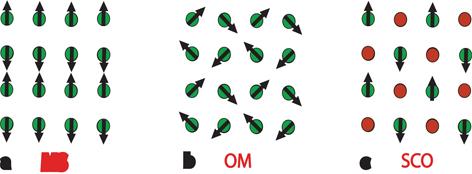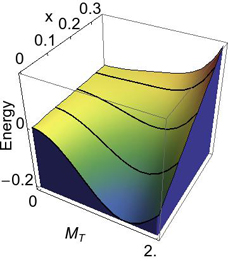Institute for Theoretical Solid State Physics - Dresden

 DE
DE
IFW Dresden ITF
www.ifw-dresden.de
Organization profile:
The ITF is the Institute for Theoretical Solid State Physics at the IFW Dresden, a non-university research institute and a member of the Leibniz Scientific Community in Germany. It is concerned with modern materials science and combines explorative research in physics, chemistry and materials science with technological development of new materials and products. The IFW Dresden employs about 400 people, among them 190 scientists, of which 40 are at the ITF. More information can be found at http://www.ifw-dresden.de/institutes/itf .
Leader:
Prof. Dr. Jeroen van den Brink is the Director of the Institute of Theoretical Solid State Research, IFW Dresden, professor at the Dresden University of Technology in Germany and honorary professor at the Radboud University Nijmegen, The Netherlands. Van den Brink is known for contributions to the field of strongly correlated materials, in particular for work on the theory of resonant inelastic x-ray scattering, proposals on magnetic and orbital ordering and mechanisms for multiferroicity in transition metal compounds. He authored over 100 publications, of which 26 in Physical Review Letters and 6 in Nature magazines, cited in total about 2000 times. He obtained a PhD from the University of Groningen in 1997, was professor of theoretical condensed matter physics at Leiden University from 2002-2009 and in 2009 visiting professor at the Stanford Institute for Materials and Energy Science.
Expertise:
The ITF team involved in this project has a long standing experience in developing theoretical descriptions of complex magnetic, superconducting, nanostructured materials and in the phenomenological description of new emergent states of matter. In collaboration with the condensed matter theory group of University of Rome “La Sapienza” they recently contributed to the development of an effective Landau theory for iron-pnictides with phenomenological parameters determined by ab-initio calculations. The theorists master expertise in microscopic modeling of strongly correlated electron materials, using where possible ab initio results to construct effective interacting theories, order parameter descriptions and many-body model Hamiltonians. These theoretical methodologies allow getting theoretical predictions of spectroscopic, thermodynamic and transport properties of materials.
Specific facilities:
Codes for electronic structure computations: Full Potential Localized Orbital (FPLO) code.
Computing facilities: The ITF owns several high performance computer clusters tailored to the numerical needs of the IFW Dresden.
Personnel assigned to this project:
Jeroen van den Brink (http://www.lorentz.leidenuniv.nl/~brink/), Carmine Ortix.
Main tasks in SUPER-IRON:
- Model theories of electronic structure and superconductivity
- Phenomenological Ginzburg-Landau analysis





 Based on the Exchange of Letters, JST and EC DG RTD have agreed to establish a new scheme for coordinated funding of Japanese-EU coordinated research projects (see European Community press release IP/09/1844). After consultations between JST and EC DG RTD, “Superconductivity” has been selected as the field of research for the coordinated funding scheme.
Based on the Exchange of Letters, JST and EC DG RTD have agreed to establish a new scheme for coordinated funding of Japanese-EU coordinated research projects (see European Community press release IP/09/1844). After consultations between JST and EC DG RTD, “Superconductivity” has been selected as the field of research for the coordinated funding scheme.